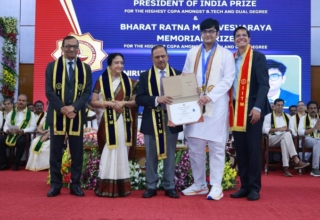
The RTE Forum, the Alliance to Right to ECD and the Campaign against Child Labour have come together to demand that the implementation of the RTE Act, the extension of the right to free, quality, equitable education for all from birth till the age of 18 years and an end to child labour must enter the core agenda of all parties for the upcoming General Elections.
The three networks, with the support of other like-minded groups, will campaign to ensure that these demands are realized. The 12 Joint Demands are as follows:
- Ensure complete implementation of the RTE Act including realizing the norms and standards in all schools by 2026 and notify clear responsibilities and penalties for non-implementation.
- Ensure total eradication of child labour up to the age of 18 years. This entails removing the provision in Section 3 of the Child Labour (Prohibition and Regulation) Amendment Act 2016 which legalizes child labour in ‘family enterprise’, removing the distinction between hazardous and not hazardous work and strengthening the enforcement of penalties on employers.
- Extend the purview of the RTE Act up to the age of 18 years, in line with the internationally recognized definition of childhood, by including ECCE, secondary, and higher secondary education as legal entitlements. Education across this age span must be free and age-appropriate in all schools and ECCE centres3 (both government and private) must be of a consistently high uniform standard, safe and equitable, provide children with the same services and provide for parent and citizen participation.
- Enhance expenditure on education to at least 6 per cent of GDP with 10 per cent of the education budget committed to ECCE to ensure adequate resourcing for delivery of school and early childhood education including provision of quality and nutritious midday meals to all children.
- Stop the closure and merger of government schools in the name of rationalisation or consolidation.
- Fill teachers’ vacancies. Ensure all teachers and ECCE personnel are professionally qualified and well-trained, have scope for career progression, receive a dignified wage and working conditions and are free from activities that are non-educational or unrelated to core ECCE functions.
- Develop and enforce an enabling national regulatory framework for all private schools and ECCE centres to curb the commercialisation of education, particularly regulating school fees.
- Take affirmative action and remove barriers to completion of at least equitable, quality education by Adivasi, Dalit, Muslim minority children, girls, children with disabilities and other vulnerable groups and stop discriminatory practices by ensuring all education adheres to constitutional principles of equity, fraternity, dignity and secularism.
- Appropriately implement and disburse resources under the Child and Adolescent Labour Rehabilitation Fund to support children freed from child labour.
- Put in place bridging mechanisms to bring all dropout and out-of-school children into school and institutionalise processes for the uninterrupted education of children from migrant families, particularly inter-state migrants.
- Expand the number of mother tongues, particularly tribal languages, used as the medium of instruction in educational settings, promote the development of textbooks and materials and recruitment of fluent tribal language speakers as language teachers and strengthen, finance and staff core institutions to ensure that this is realized.
- Revise the National Education Policy in light of the above demands.








